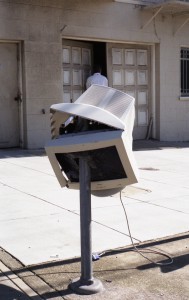It has been over one month now since Microsoft has ended support for Windows XP. This means you can say ‘Goodbye’ to automatic updates and technical assistance for this 12-year-old system. Here are some recommendations to keep your information protected.
What to do now?
The most obvious way to keep your network and devices secure is to upgrade your computers, or at the very least, the operating system. We recommend that you upgrade to Windows 7 due to its stability. It doesn’t have frequent, major crashes or slowdowns and altogether, operates pretty smoothly.
That being said, the best way to stay protected is to just replace your devices so that the generation of the operating system matches that of the hardware as well. This doesn’t mean you have to go out and buy a top of the line machine; it means you’ll just want hardware that meets or exceeds the minimum requirements of the new operating system and any software that you’ll be running. In the long run, this will create less hassles and provide for better longevity.
Will your old machine stop working if you just do the software upgrade? No, not necessarily – but especially with hardware not being as expensive as it used to be, we strongly recommend a machine replacement in order to avoid slowness and other instability issues. Looking at the situation over the long run, you’ll most likely save more money and definitely avoid tedious fixes by replacing your machines altogether.
Windows has even set up a way to transfer your data (for free!) from your old Windows XP computer to your new Windows PC. Check it out.
Going hybrid?
Ok, so maybe you don’t want to pay around $650/device (which includes the newer operating system) to replace all the machines in your office and can only afford the $130/device upgrade. While you’ll temporarily be saving money by not buying new hardware, the issues stemming from the incompatibility of the upgraded operating system software with your old equipment will nickel-and-dime you into frustration and a lighter wallet anyway. Note the photo below.

Photo by @ultimateslug
What happens if I still have to use Windows XP?
If you’re not able to swing the device replacement or software upgrade, then my advice is to disconnect the PC from having internet access and use it as a stand alone machine. But if you MUST use the internet, then I suggest you tread lightly. You’ll need to be on the extreme defensive and only go to known websites, emails, etc. Exercise caution with anything that requires a download as it may contain viruses or other nasties. You and other employees should understand the risks associated with using the Internet and how hackers try and access your systems.
Other than being aware while browsing the web, you can also make sure your firewalls and anti-virus software is up to date. Check with your software vendors, whether it’s Symantec, McAfee, etc. and whether or not they are able to provide support in this area. Do not install software that you don’t know much about, especially the “free” ones. We also recommend that you put some web filtering in place to open up only business necessary websites to your XP machines.
What operating system have you upgraded to from Windows XP?

